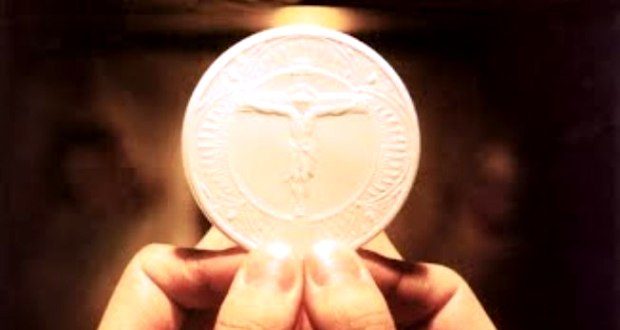The dogmatic constitution on the Church of the Second Vatican Council, Lumen Gentium, reminds us that as believers we’re all called to exercise a prophetic role in our state of life, in imitation of Our Lord: “The holy people of God shares also in Christ’s prophetic office; it spreads abroad a living witness to Him, especially by means of a life of faith and charity and by offering to God a sacrifice of praise, the tribute of lips which give praise to His name” (n.12). As today’s readings remind us, this mission is not without difficulty, so we must carry it out with zeal and enthusiasm.
In today’s First Reading the Lord prepares the prophet Ezekiel for a tough mission: to be the Lord’s spokesperson to a rebellious people not disposed to listen. Ezekiel called out Israel, at the Lord’s command, for its infidelity and corruption in the period leading up to, and then following, the Babylonian exile in 587 B.C. The Spirit set Ezekiel on his feet. It spurred him to action, not just his own frustration and disgust with what was befalling his people. The Holy Spirit is very active in helping the prophet carry out his mission, and the Spirit wants to put us on our feet as well.
In today’s Second Reading Paul reminds us that me may not feel up to the mission, due to our limitations, but Our Lord makes his power shine through our weakness. The Church Fathers have had all sorts of opinions on what the “thorn” hindering Paul in doing his job was. John Chrysostom saw it as referring to the persecution and trials he suffered. Augustine saw it as some physical debilitating illness that was chronic. Gregory the Great thought it might have been temptations to concupiscence. The Spirit of the Lord spread and conquered hearts, just as it does today. All of these reasons are valid, even today, for discouragement, but St. Paul tells us today what Our Lord told him: you have all the help you need. Our “thorns” make our mission even more fruitful, and Our Lord will not let our mission fail because of them. We just have to keep trying and not get discouraged when it seems there are no results.
In today’s Gospel Mark describes the reception of Jesus’ message in his home town as like that of a prophet: unwelcome. In Jesus we find the mission of priest, prophet, and king combined. As prophet he is the bearer of God’s message; in fact, he, as the Word, is the message of God himself. In sharing the faith we as Christians also have a mission to bear God’s message and make it known. That happens through sharing our faith, through teaching the faith, but also by the very fact of being Christian.
It’s important to keep in mind something that’s fundamental to being a prophet: God is sending a message that people don’t want to hear. In being a prophet we can sometimes question whether if we’d said something more eloquently or done something better that message would have been welcomed more warmly. Today’s readings remind us that even if we do everything perfectly, as Jesus did in today’s Gospel, there’ll still be incredulous people. Let’s ask Our Lord today to be bearers of his message in our words and our example, and to help us not get discouraged in our mission of sharing his Word with everyone we meet, especially the ones we love.
If you’re shy about sharing your faith because you’re afraid of coming across weird: own it. Prophets are weird and counter cultural, because they’re bearing a message people need and probably don’t want to hear. Examine your life this week and see whether you’re just being “weird” at your parish or letting that weirdness shape your life everywhere. People, strangely enough, seem a little attracted by the weird. Help them experience Gospel “weirdness.”
Readings: Ezekiel 2:2–5; Psalm 123:1–4; 2 Corinthians 12:7–10; Mark 6:1–6.


